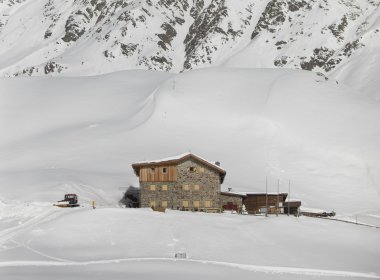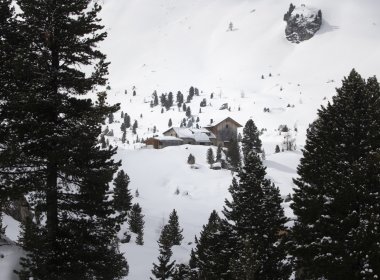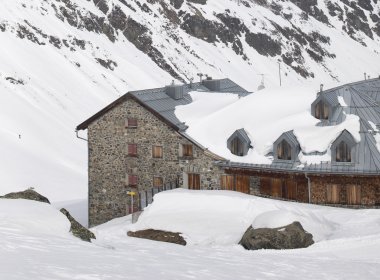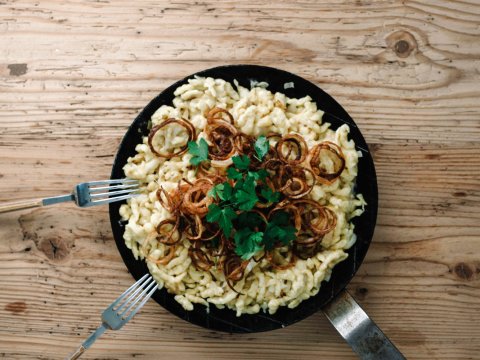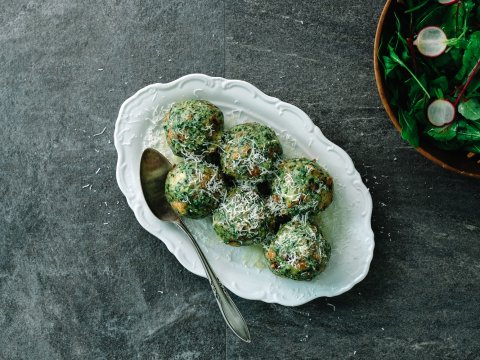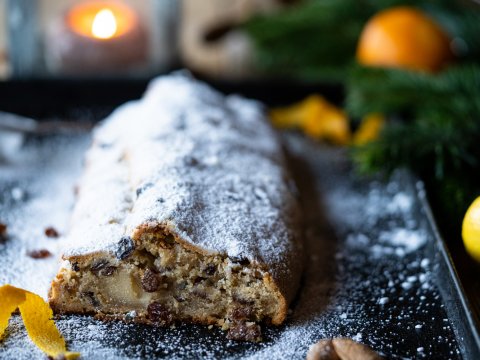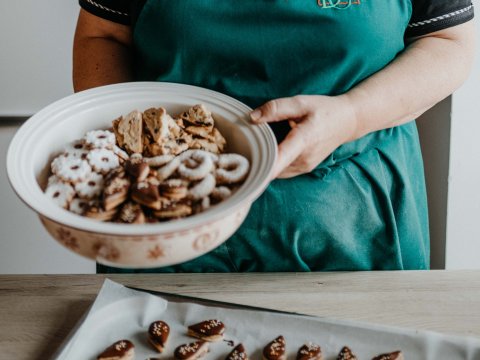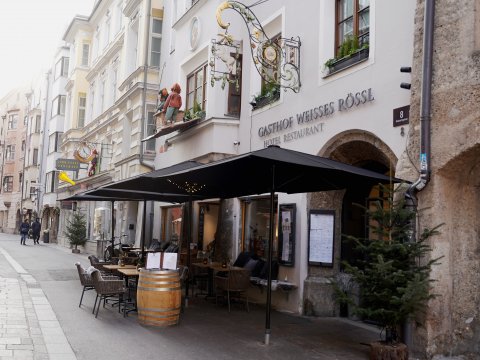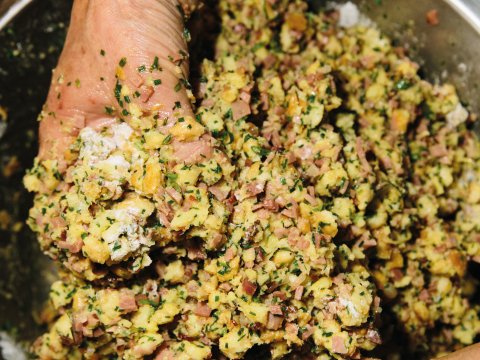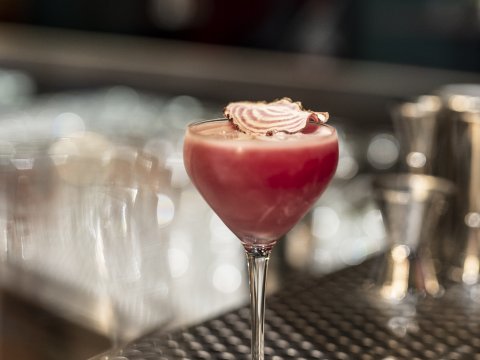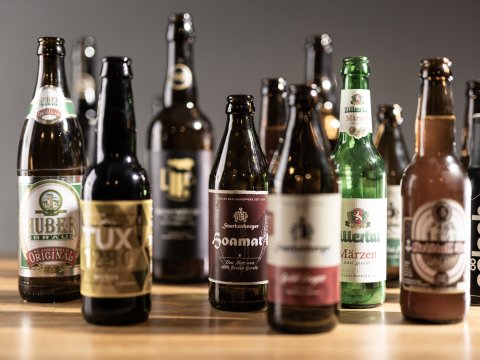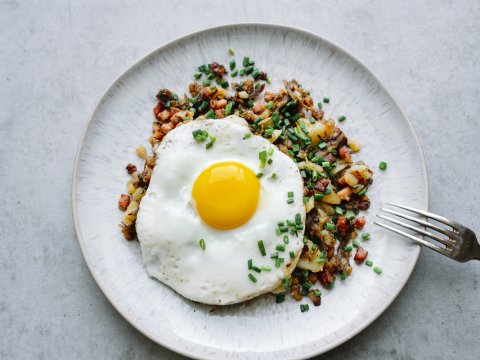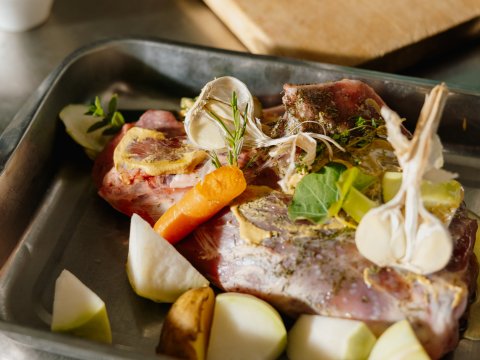Yuck? Yum!
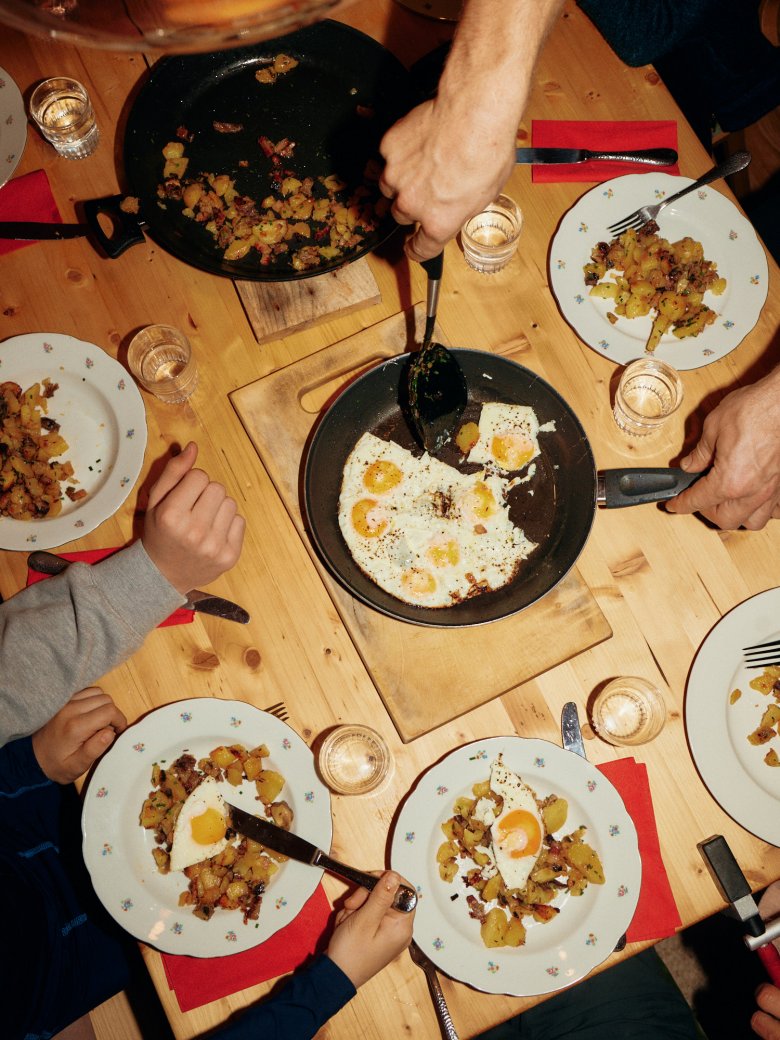
Adults have pretty fixed ideas about what children should and should not eat. But then again, so do children! In most cases these ideas are worlds apart. In search of a solution, we tasted our way through some traditional Tirolean dishes together with a few little hungry helpers and discovered that it is often the food you make yourself that tastes the best.
Parents worry a lot about their children's nutrition. Are they eating the right amount of vegetables? Too much meat? Or maybe not enough? Is it bad if 95% of what they consume consists of their favourite dishes – chips with ketchup, spaghetti, etc.? Or is it just parents being overly worried? Does giving even young children lactose-free food lead to complicated eating habits later in life? Or does it protect them from harmful influences? One thing food experts can agree on is that variety is good. And as long as the food is freshly cooked, everything that tastes good is healthy – at least in moderation.
But how can you get children, who can be more than a little conservative when it comes to food, to try out new things at the dinner table?
We tempted nine children aged 2 to 15 to Tirol with the promise of a ski holiday – in return they agreed to try out some of the classic dishes of the region, some of which even feature the much-maligned ingredient liver.
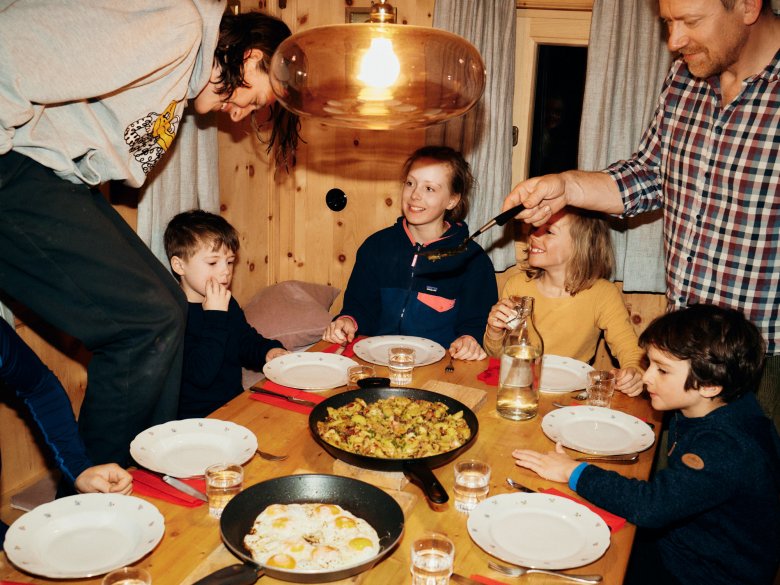
AMUSE-GUEULE: SOMETHING EASY TO START
A few Austrian classics are rights up there with chips and spaghetti when it comes to children's favourites. That's why during the day, when eating at some of the local ski huts, we opt for these safe options: Wiener Schnitzel, Kaiserschmarren and Germknödel. The former will be familiar to all who have come into contact with Austrian cuisine, while the latter are sweet dishes eaten as main courses rather than desserts.
Freddy, Nicki, August, Holly, Ida, Vinzent, Lenz, Julius and Oskar wolf them all down with glee. For our more experimental evening meals we have free reign of our accommodation, the Ferienhaus Brandleit, a mountain farmhouse with cosy rooms, a wood-burning stove and plenty of space in the kitchen.
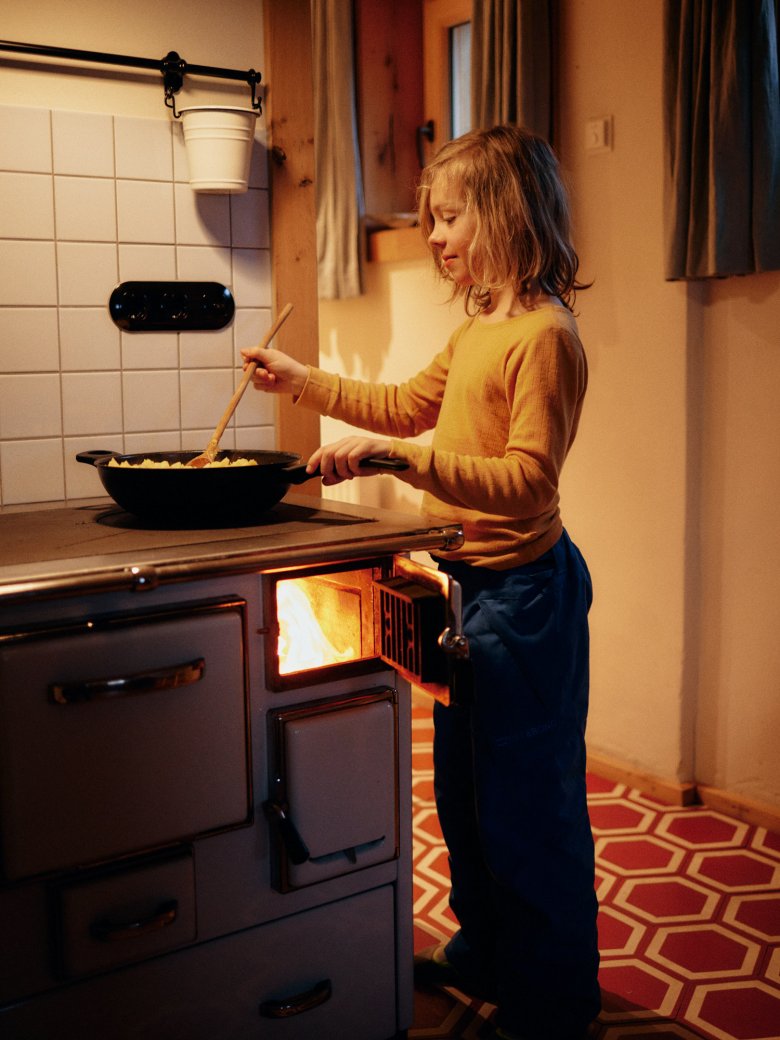
The plan
Our idea is to taste our way through Tirol's classic dishes and see what our city-slicker kids think of them. Many have spent little or no time in the kitchen before, so you can imagine their reaction when we asked them to help with tasks like boiling up four kilos of bones to make a beef broth. Then there are the ingredients, some of which the children (unsurprisingly) had never even heard of such as "Graukas" cheese from the dairy farm or liver from the local butcher.
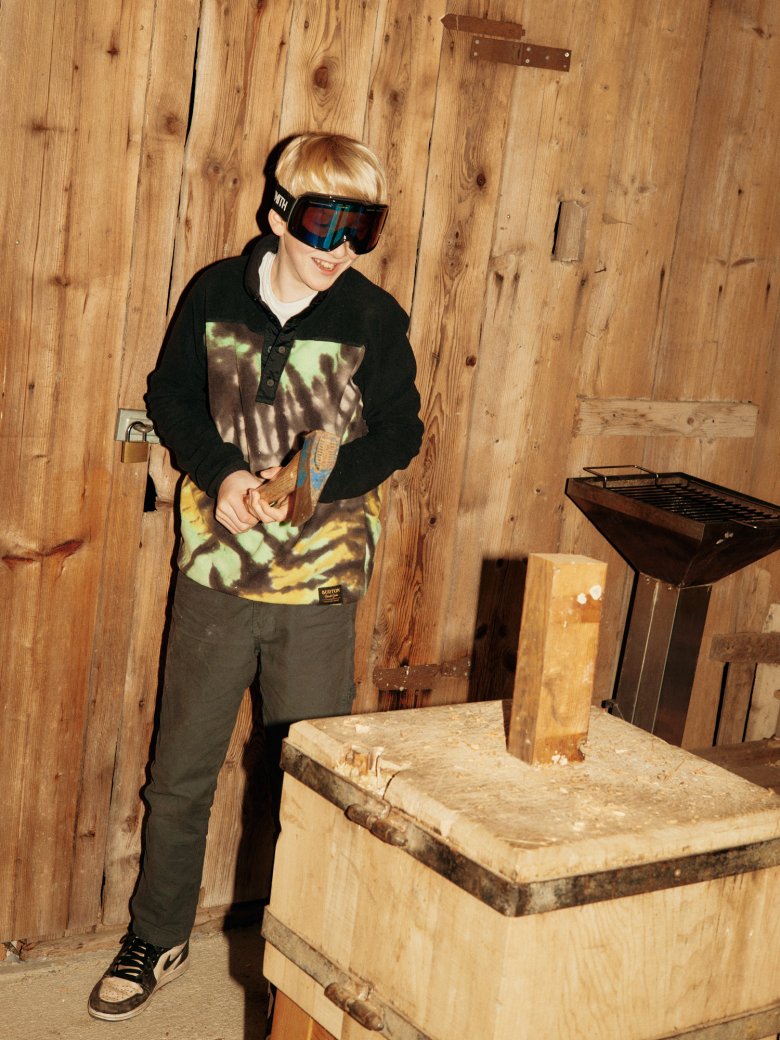
FIRST COURSE: JAUSENBRETT SURPRISE
On our first afternoon we decide to go for a classic "Tiroler Marend". This all-seasons favourite is a basically a cold platter featuring ham and tangy mountain cheese, plenty of bread, and a few less well-known ingredients such as freshly grated horseradish. Most of the younger diners are put off just by the smell of this super-spicy root vegetable which can bring tears to the eyes of even the most dedicated curry eater. The only member of the crew willing to give it a try is Nicki, who nervously tastes a few shavings before gulping down a whole glass of water to extinguish the fire in his mouth.

August and Oskar, the oldest in the group, also agree to sprinkle a tiny bit over their ham sandwiches. Their verdict? Not so bad! For the Graukas cheese, we go for the classic side dish of raw onions. This is a pretty bold choice with kids in mind, but with adultspopular option as it helps to mask the cheese's slightly disconcerting smell. With children, it seems, the opposite is the case. Cheese, onions, vinegar, all in the same dish? No thanks! Back to the drawing board for the Graukas. I guess we will have to hide it away in some dumplings.
Superfood from Tirol: Graukas
What parmesan is to the Italians and camembert to the French, Graukas is to the people of Tirol. This variety of cheese may be much less well-known than its continenal cousins, but it is well worth a try.
SECOND COURSE: DUMPLING TRIO
Evenings two is all about dumplings, dumplings, dumplings. We serve our crew of cuisine critics three popular varieties: bacon dumplings, cheese dumplings and liver dumplings. The first are a sure-fire hit, while options two and three allow us to incorporate more challenging ingredients into a familiar format.
Freddy, the keenest helper in the kitchen and a self-declared vegetarian, is all of a sudden keen to try the bacon and liver dumplings. We also manage to smuggle some Graukas cheese into the cheese dumplings. Served with a variety of side dishes, from soup to salad, the dumplings go down a treat and at the end of the evening there is nothing left.
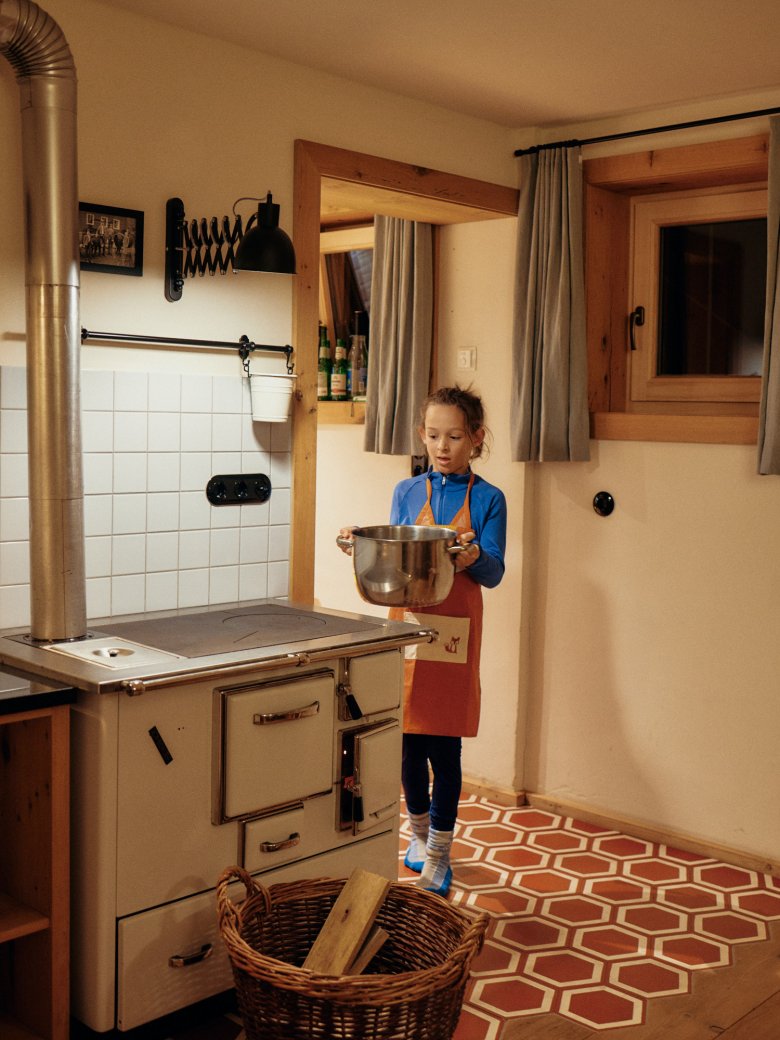
We ask the children which dumplings they liked best. Despite rejecting the Graukas we offered them the night before, two of them chose the cheese dumplings as their personal favourite. Overall it was the bacon dumplings that took first place. When it came to the liver dumplings, Nicki – the only one to try horseradish the day before – once again offered himself up as a guinea pig. Whether or not he liked them is another question...
Tirolean bacon dumplings
Bacon dumplings, known here as Tirolean dumplings, are one of the perennial favourites in the region's huts and restaurants. For those keen to try making them at home, here is our top guide on how to make delicious dumplings wherever you live.
Time for dessert! Tonight, as most evenings, the kids are in agreement that sweets are what the Tiroleans do particularly well. We tuck into a hearty portion of Moosbeernocken, a kind of thick and fluffy pancake made with blueberries and chopped up into little pieces. The dumplings were pretty filling, but I suppose there is always space for a little dessert.
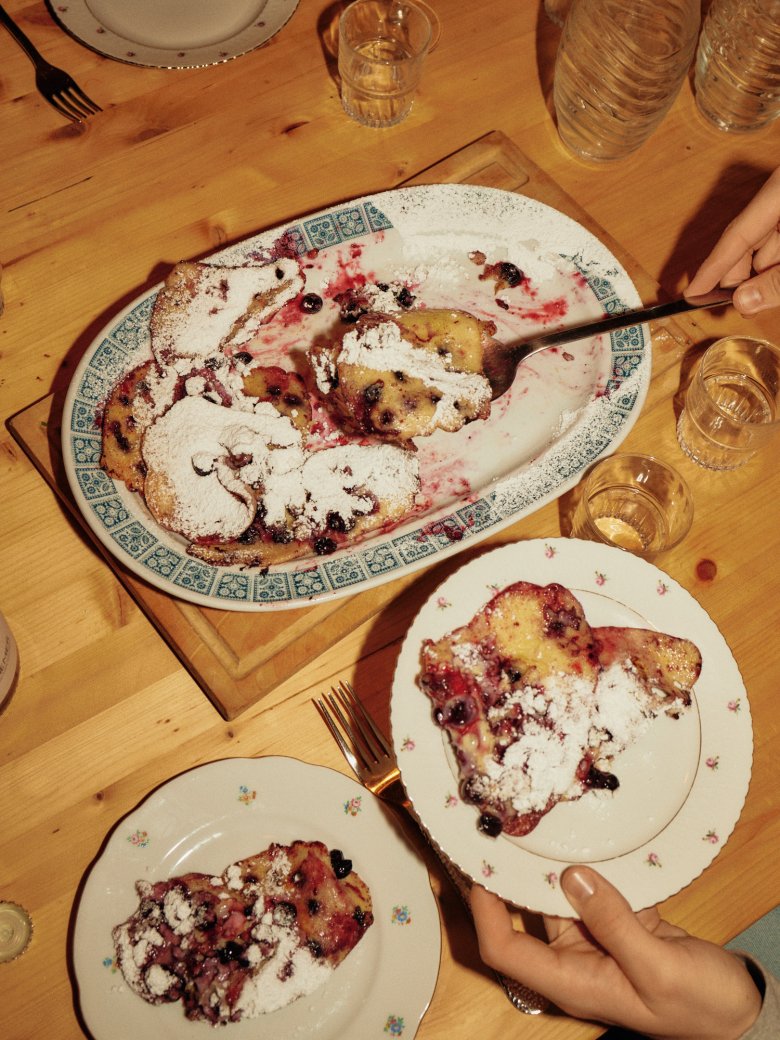
Moosbeernocken
Moosbeernocken are thick pancakes with plenty of blueberries. These little berries are packed full of healthy vitamins and also taste fantastic. Check out the recipe below and make some of your own Moosbeernocken at home.
THIRD COURSE: TIROLER GRÖSTL IN AN IRON PAN
On the second big evening, the children are invited to get involed with not only stirring the ingredients in the bowl but also cooking up a storm using a huge iron pan we find in the kitchen. There is bacon and onions to cut and the potatoes and leftover meat from the first evening. Some people call it a use-up meal, but it's good if the children realise that you can make a very good dinner from leftovers. The resulting Tiroler Gröstl goes down a treat. But maybe that's also because we have already told the kids what's up for dessert...
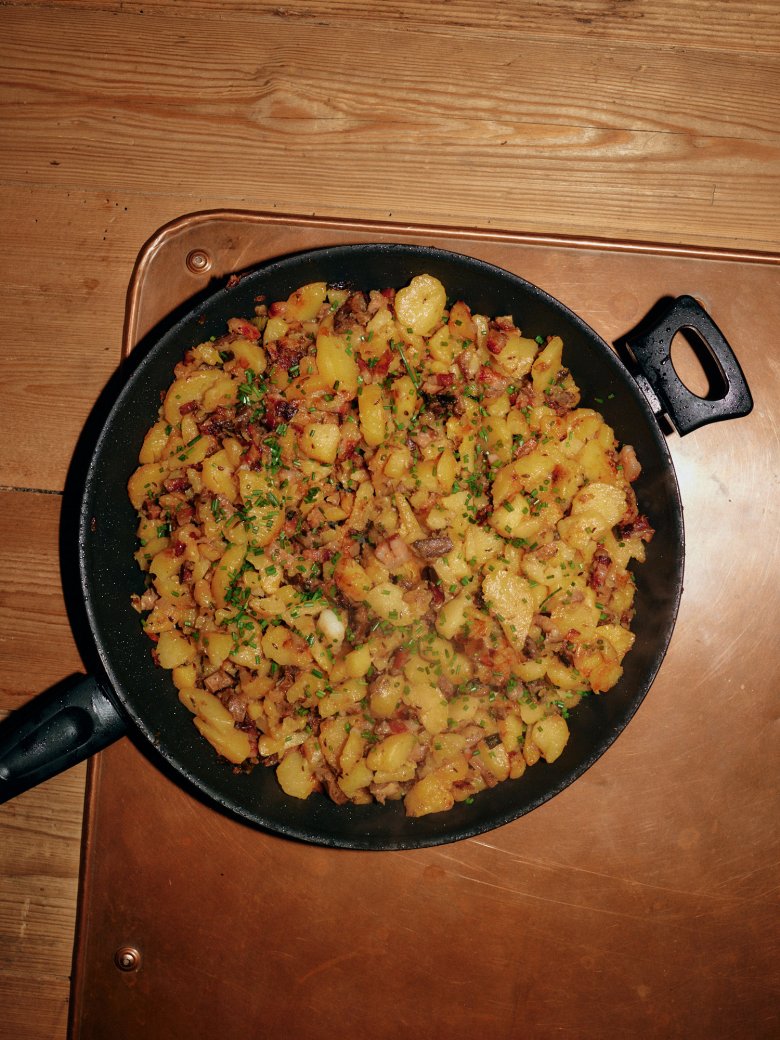
Tiroler Gröstl
An iron pan, potatoes, bacon and eggs. What can go wrong with simple but delicious ingredients such as those? Tiroler Gröstl is another classic dish which originated as a way to use up leftover ingredients but has now become a popular meal in its own right.
The much-awaited dessert comprises what are known as Paunzen. These small, round potato fritters taste delicious when served with apple sauce and are much healthier than other snacks that keep you coming back for more.
All adults and kids, including two-year-old Holly, pick away feverishly at the Paunzen until they are none left. A definite favourite of the holiday so far. Next time we will remember to add a dusting of icing sugar and they will disapper even quicker.
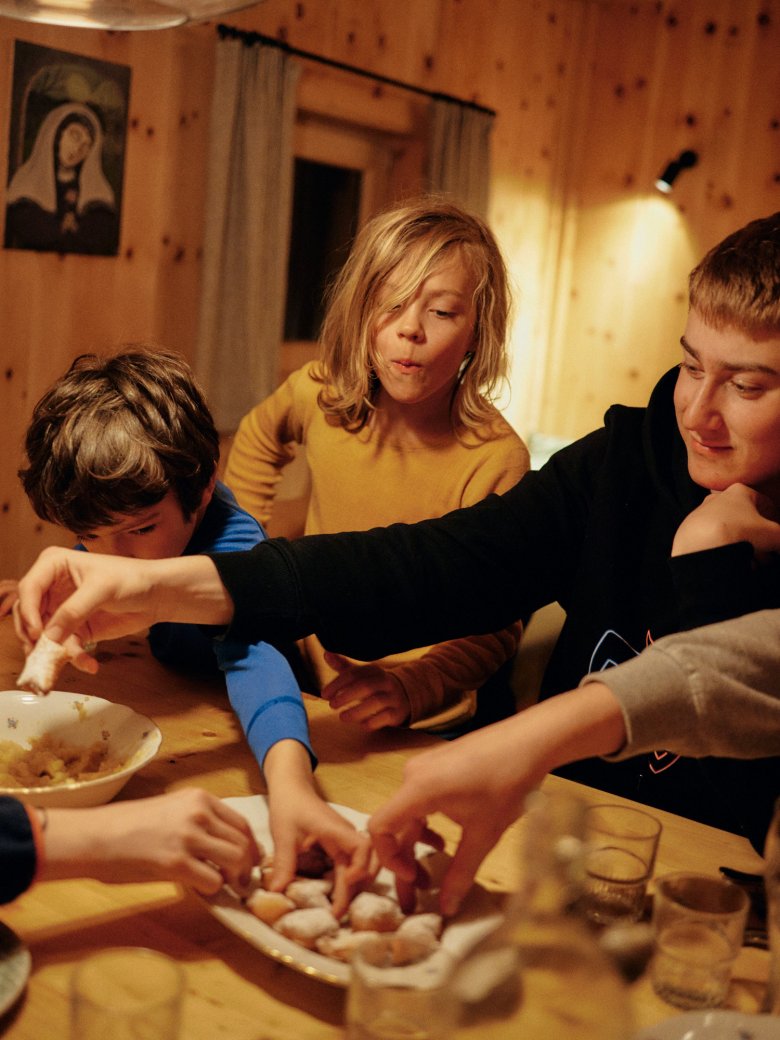
With sweet dishes proving such a hit, for our last evening we decide to go for a 100% sweet experience by making Mohnnudeln – a dish so filling that it qualifies as a main course in its own right. We could have gone for the wonderful Zillertaler Krapfen, but these are a lot of work to make and can be bought fresh every Friday at the church in Fügen, prepared by a group of local women who are far more expert than we ever will be. And so our week of culinary discovery ends not with a dish we have prepared ourselves but one created by people living in a place where the recipe has been passed down over hundreds of years. It is a fitting end to what has been a hugely enjoyable experience. Bon appétit, or as we say here in Tirol: Mahlzeit!
Paunzen with apple sauce
Paunzen look a lot like gnocchi, but don't confuse them with their Italian cousin. This sweet but healthy dessert is best served with a sprinkling of icing sugar and plenty of apple sauce for dipping. Local chef Michael Ploner shared with us the recipe he was given by his grandmother.











